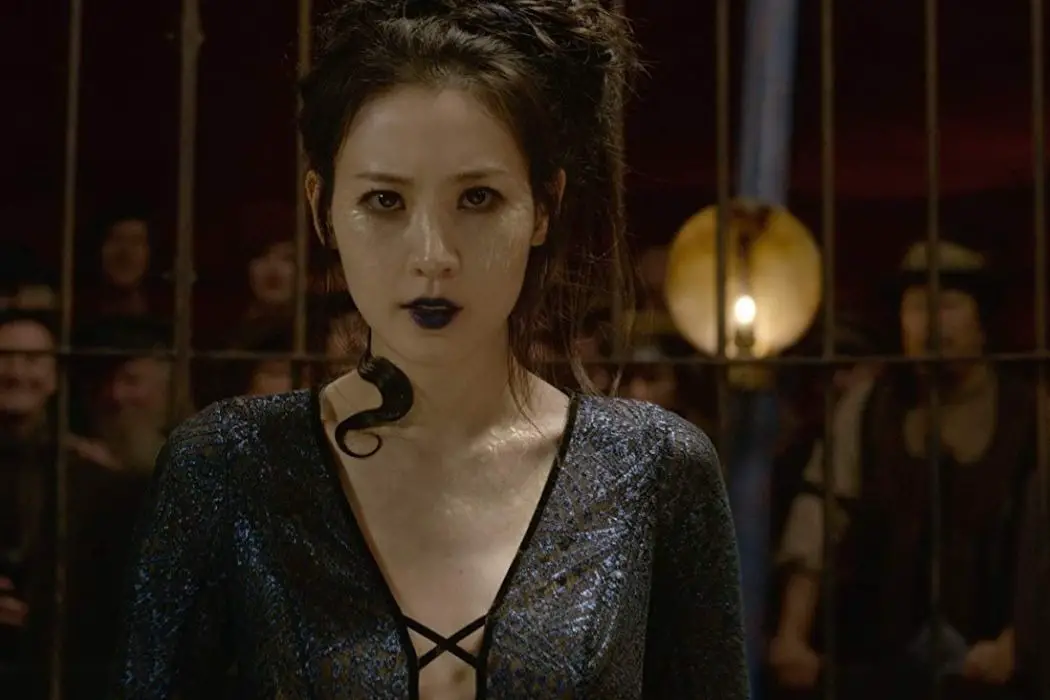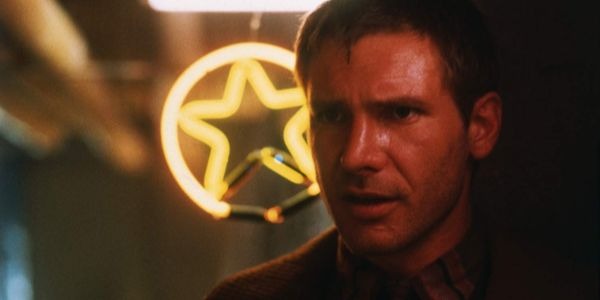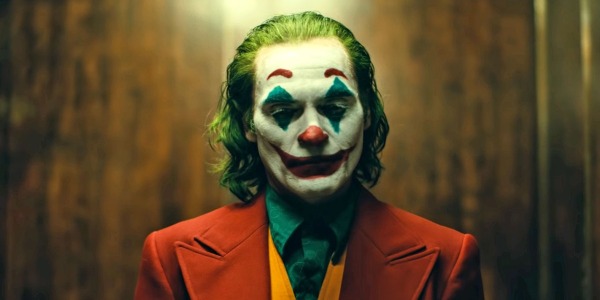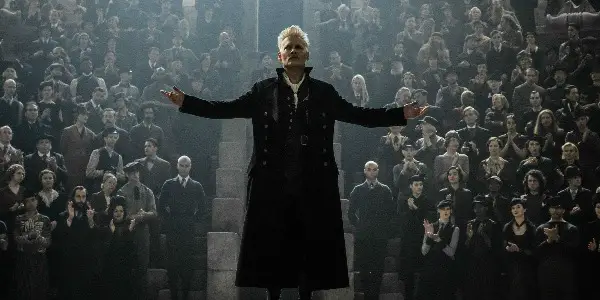Rubber Duckies & Killing Kittens: Why Has Mainstream Film Become Fixated On Backstory?

I once made mashed potato for Rick Astley. It's not…
“A character should be clear from his present actions,” suggested Sidney Lumet, director of 12 Angry Men, in his 1995 book Making Movies. “If the writer has to state the reasons, something’s wrong in the way the character has been written.” Acerbically, Lumet suggested this is sometimes put down to events as simple as someone stealing a character’s “rubber ducky” when they were a child.
His view on storytelling was expanded by David Mamet, who deplored when a character is able to explain their entire psychological state through a fixed event in their past. Mamet, the playwright and screenwriter behind Glengarry Glen Ross, coined the moment the “death of my kitten speech.”
It usually features an actor staring into the middle distance and recalling a formative moment in their past which has durably shaped the person they are now. Mamet’s conclusion was that: “When the film turns narrative rather than dramatic, when it stands in for the viewer’s imagination, the viewer’s interest is lost.”
Like Tears In The Rain
One curious example of narrative taking the place of imagination is the Theatrical Cut of Ridley Scott’s Blade Runner. Unlike the Director’s Cut, or indeed the more recent Final Cut, the original 1982 version featured, alongside an overly sweet ending, a series of voiceovers by Harrison Ford’s Deckard. Thought necessary by studio executives at the time, this does allow the film to embolden its noir credentials. However, it’s not a stretch to suggest that it also dampens the impact of Scott’s thoughtful, lingering film.

Deckard may tell us what he’s thinking, as opposed to letting the audience surmise it for themselves, but Blade Runner never strays into the precarious land of kitten killing. Indeed, the beautiful, haunting ‘Tears in the Rain’ monologue which closes the film is impactful precisely because of its taut imagery. It tempts us to imagine the battle ships on the “edge of Orion” and the dark of the “Tannhauser gate,” without needing to have seen Roy Batty gazing at it himself.
Want To Know How I Got These Scars?
Kitten killing doesn’t always have to be a bad thing. The Joker’s potted summary of how he got his scars in The Dark Knight adds nuance to the character’s worldview. Yet when we look ahead, Todd Phillips’ Joker will, to all intents and purposes, take these few lines and turn them into a full film. More gallingly, it intends to provide a fully fleshed-out origin to a character who simply doesn’t need one.
To many, the Joker is the embodiment of chaos. Devoid of a concrete background, he is a force of nature which may be the antithesis of his bat-shaped nemesis, but is also able to complete him. More than anything, he just is. Though we can be fairly confident that Joaquin Phoenix is going to bring something new to this iconic character, do we really need to see how he came to be? At a base layer, do we need a film which codifies the viewer’s imagination?

Tell Me More, Tell Me More?
Mamet and Lumet’s theories fold into a larger ‘rule’ of film-making, namely; show, don’t tell. Yet we might conclude, when looking at the current cinescape, that Hollywood has taken this maxim to its furthest logical point. Applying not just the individual characters, mainstream cinema has doubled down on films which are essentially extended pieces of exposition.
The saturation of prequels, in particular, serves as an opportunity for filmmakers to take iconic stories or characters and fill out their backstory. They’re showing us something which stems from an original film’s subtext.
Whether it be learning how Han Solo slowly evolved into the cynic we see in A New Hope, or how Sandy and Danny met in the run up to Grease, Hollywood is intent on adding weight to existing material. But does this work? Lumet may suggest not. By stating ‘historic’ reasons for ‘current’ actions, prequels risk undermining and not enhancing the original story.
As If By Magic
Let’s take Fantastic Beasts: The Crimes of Grindelwald. JK Rowling’s expansion of the Wizarding World has informed us that Lord Voldemort’s killer snake, Nagini, was once a woman. A woman who will assume the permanent form of a snake as a result of a fatal blood curse.
Now, while there is narrative intrigue here, you could argue that it undermines Neville Longbottom’s crowning achievement in Harry Potter and the Deathly Hallows. Neville beheads the snake, destroys a horcrux and leaves Voldemort more vulnerable than ever. But is this not soured by the thought that Neville has actually just decapitated something, or someone, who was once human? (Perhaps let’s come back to this again in three films’ time…)

Prometheus, in spite of its lofty ambition and sumptuous production design, provided answers to questions no-one had asked. Exorcist: The Beginning was an unnecessary project which lacked the bite of its narrative successor. Perhaps most famously, the midi-chlorian counting The Phantom Menace tried to add a layer of soulless empiricism to the Force.
The World We Live In
Though it is easy to bemoan the lack of originality in Hollywood, there are prosaic reasons why we keep getting films like this. In 2018, only four of the top 20 highest-grossing movies were unconnected to existing franchises, while five of the top 20 are origin stories or prequels.
When we get down to brass tax, adding new narrative avenues to existing stories sells. Why take a risk on a new franchise when you know a prequel, sequel or spin-off comes with an inbuilt audience? It’s a natural step for producers, but also for audiences. Cinema has amassed such a beloved canon of heroes and villains that it is unsurprising we’ve become a bit stuck in their collective ambit.
Indeed, prequels are a strange hybrid of both ‘show’ and ‘tell’. Though they are ‘showing’ us a self-contained narrative, they are really just ‘telling’ us something about an existing story. Especially when the relationship is as linear as the Star Wars prequels, or the Lord of the Rings links which were crow-barred into The Hobbit.
The kicker to all of this, of course, is that audiences crave to know more. We want to know how about the epic duel between Dumbledore and Grindelwald. At some level, we want to know how The Joker became the Dark Knight’s nemesis. In an age where fan theories flood over the internet, audiences are compelled to look back in the vague hope they will stumble upon who will win the Game of Thrones, for instance.
Increasingly, audiences are quite up for seeing a rubber ducky being stolen, or hearing how a childhood kitten died. Studios and audiences have seemingly agreed upon one thing. Though prequels offer us the enjoyment of a new narrative in a world we love, they also give the safety of knowing what will happen in the end.
Do you agree? Do you think that there’s a problem with prequels and sequels, or do you just love being back in Middle Earth, the Wizarding World, the Star Wars Universe and more?
Does content like this matter to you?
Become a Member and support film journalism. Unlock access to all of Film Inquiry`s great articles. Join a community of like-minded readers who are passionate about cinema - get access to our private members Network, give back to independent filmmakers, and more.
I once made mashed potato for Rick Astley. It's not really relevant to my passion for film but hey ho.













